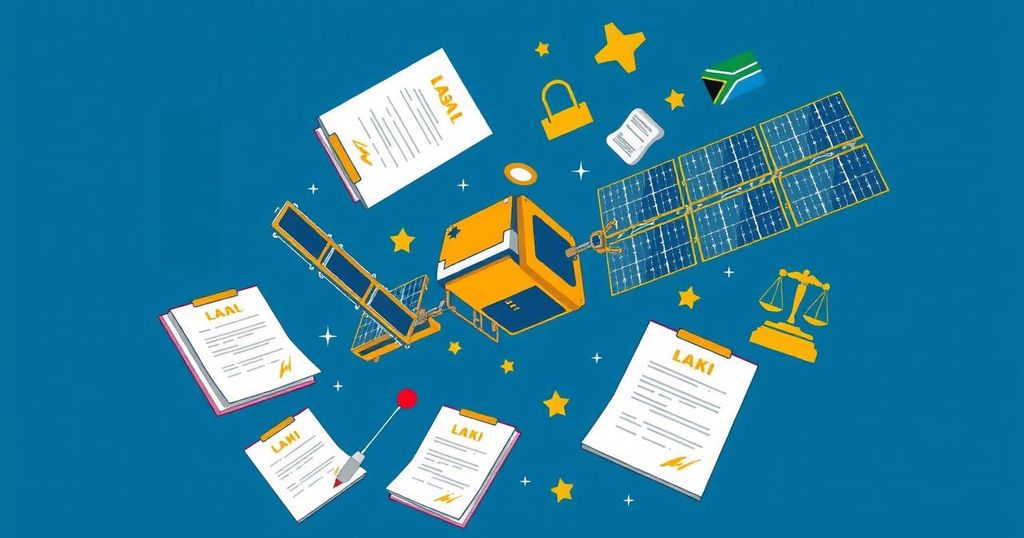Elon Musk claims Starlink’s failure to launch in South Africa is due to black empowerment laws requiring 30% local black ownership. Regulatory bodies state Starlink has not applied for necessary permits, and there is political resistance to changing these requirements. Negotiations continue amidst rising tensions in US-South African relations.
The conflict between Elon Musk and South Africa regarding Starlink’s operations arises from the nation’s requirements for black empowerment, reflecting deeper tensions in US-South Africa diplomatic relations. Musk indicated via X that his service could not launch due to the stipulation of needing a black partner, a claim contested by regulatory bodies that noted no application had been submitted by Starlink.
Starlink is mandated to secure network and service licenses in South Africa, which stipulate a 30% ownership by historically disadvantaged groups, primarily the majority black population. This requirement emerged post-apartheid in an effort to address economic disparities exacerbated by past racial injustices, a significant concern for Musk.
Mr. Musk’s perspective suggests that black empowerment laws alienate many foreign satellite providers, a view countered by South Africa’s foreign ministry, highlighting that over 600 US companies comply with local laws and remain successful. Communications Minister Solly Malatsi, allied with the Democratic Alliance, has voiced intentions to explore ways to ease these ownership restrictions.
Despite interest from South Africa’s officials to facilitate Starlink’s entry without black ownership requirements, legal obstacles remain. Tensions arise from various political factions, with ANC lawmakers emphasizing adherence to these empowerment laws as integral to national transformation efforts.
The frayed diplomatic relations between the United States and South Africa have intensified, partly fueled by Musk and Trump’s criticisms of local ownership regulations. As accusations of discrimination arise, discussions about land seizures and economic empowerment laws have aggravated this dynamic.
Various developments unfold across Africa, as Starlink seeks market entry in countries like Lesotho and Namibia, facing their own local partnership stipulations. Recently, Starlink secured a license in Somalia, part of its ambition to extend high-speed internet access to underserved regions throughout the continent.
As negotiations progress, it remains evident that a compromise could yield significant benefits for both Starlink and the South African government in terms of internet accessibility, aligning with broader national objectives before the 2030 goal of universal internet access.
In summary, the ongoing situation between Elon Musk’s Starlink and South Africa highlights significant points of contention regarding black empowerment laws and foreign investment regulations. While attempts are being made to navigate new pathways for Starlink in South Africa, political resistance manifests largely from the ANC’s commitment to transformation policies. Additionally, broader implications for US-South Africa relations underline the critical nature of understanding local laws and the need for compromises to foster mutual progress in internet accessibility across the continent.
Original Source: www.zimlive.com






